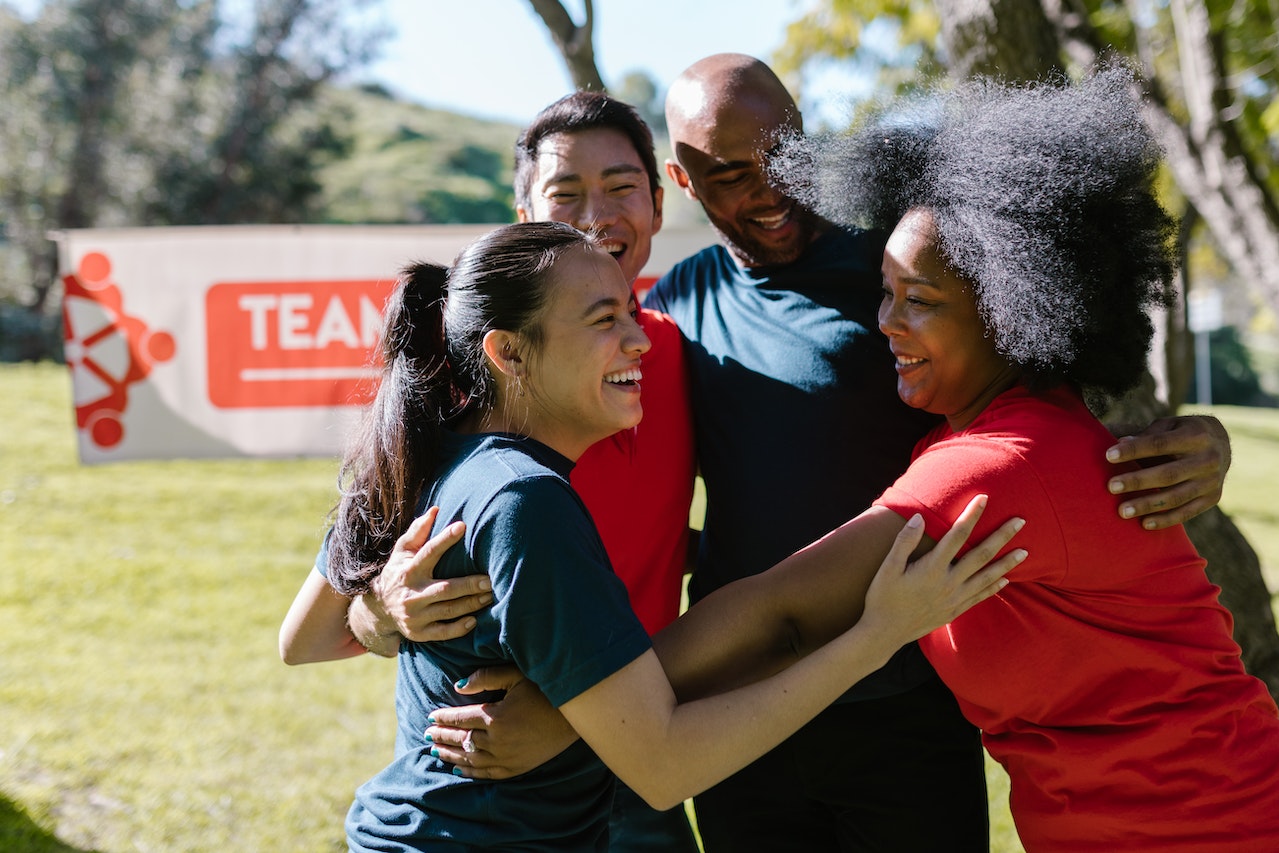Collaboration is something that should exist in every organization. Collaboration improves how your team solves problems and how to work together. If every job is done by collaboration, it will lead to efficient processes, more innovation, improved communication, and increased success. When employees collaborate, they have more focus than working individually, can work faster because they share tasks with each other, and provide input to each other to complete tasks together. If we know that collaboration can lead to high-quality work, then every organization must learn how to teach collaboration at work. This time we will discuss collaboration skills, from definitions to examples.
What are collaboration skills?
Collaboration skills are a collection of skills needed when working with coworkers on a joint objective. These skills are essential for achieving common goals, getting more work done, and achieving better outcomes. Teaching these skills to employees will improve team cooperation, with several abilities being similar to team management skills, team building skills, leadership skills, and HR skills.
Why collaboration is an important skill?
Collaboration builds a solid foundation for other important skills. It works on time management, communication, problem solving, resource allocation and leadership. Through collaboration, you can understand what coworkers think, convey your opinion to the team, communicate with others to achieve the same goals. Collaboration is an important aspect of work because the team must be able to solve challenges together, without having to handle every single thing individually.
With collaboration, each individual will have a positive impact on the team, trust other team members more, and complement each other's shortcomings. Perfect team doesn't exist, but it's possible when your team keeps practicing any collaboration skills.
Collaboration skills examples

Collaboration at work adjusts to how many employees are involved and what media are used. For example, collaborating on a project with external customers, will be different from collaborating with coworkers on a short email campaign call. The following are some examples of cooperation skills which are crucial for building teamwork.
- Communication
Communication is number one because it can express yourself clearly if you want coworkers to mutually benefit you in terms of knowledge and experience. There are three primary modes of communication, written communication, verbal communication, and nonverbal communication. For written communication, try to write without mistakes, and easy to understand. Don't let your coworkers get lost in translation.
For verbal communication, state your case clearly and concisely. There will always be disagreements between you and your coworkers, but you must still respect their decisions and treat them with dignity. For nonverbal communication, pay attention when communicating with coworkers by managing your facial expressions, tone, and body language.
- Listen and comprehend
The abilities that must be owned by every employee are to listen and comprehend. It's not just hearing or reading what the coworkers say, but also comprehending what the coworkers want to convey without passing judgment, and ask for clarity if you feel unclear about the information the coworkers provide. Each employee has a different mode of communication, specializations, and background. By listening carefully and comprehending information, it will strengthen the communication and clarify any assumptions.
- Open mindedness
Every employee wants their opinions to be heard and their ideas chosen, but they also have to understand that every opinion must be prepared to accept another input or rejection. When employees start to doubt about how coworkers receive their input, they will reconsider how to voice their opinions. The leader must foster an atmosphere that encourages employees to share perspectives, brainstorm, and respect the opinions of each team member.
15 Best Management Games to Play at Work
Collaboration means listening to the opinions of team members and engaging in healthy debate and discussion. If implemented properly, every opinion can be a knowledge exchange and a source of creativity and productivity. Debate with each other will be a helpful feedback that enhances the self improvement, better in projects, and boosts earnings.
- Adaptability
Every organization needs adaptation all the time. Every project, every problem, both management and staff must be able to adapt. Some things that might arise for adaptation are unexpected problems, changes in priorities, delays, and lack of available funds. Employees who can adapt to all situations can think quickly and creatively even though they are under pressure.
But adaptation is not only done by one team member, but it is necessary to communicate with the team and develop a plan together. Adaptability is the key to innovation. If every employee can think creatively when in uncertainty, then the team can have high morale and have creative problem solving methods.
- Emotional Intelligence
Collaboration can happen when you can discern when the coworker doesn't know how to react or is under pressure. Your coworker may need you to be a place for them to tell stories about issues at work or troubles in a particular assignment. As a good co-worker, you can provide support and encourage them, because employees who are experiencing work burnout need time away from work and calm their minds.
The ability to help each other when someone is at work burnout and provide encouragement is one of the most important emotional intelligence in a workplace. Also, people who have high emotional intelligence will not give offensive feedback or criticism when coworkers experience difficulties at their jobs.
- Delegation
One of the perfect forms of teamwork is delegation and organizational skills. When tasks and responsibilities can be divided properly and clearly defined, that's the fastest ticket to success. As a good leader, you need to delegate work to team members according to their knowledge, experience and competence. Collaborating means knowing what team members can do, and ensures that each member will not be overwhelmed with the tasks assigned.
- Conflict resolution
Disagreements are normal in every workplace. But sometimes, disagreements can make coworkers stop doing their tasks. Employees who have conflict resolution skills can prioritize tasks and resolve any conflict without having to disrupt deadlines. If there are employees who are still having trouble resolving conflicts, try a number of things, such as talk and hear each other out, try to understand the problem without blaming each other, respect each other, accept the differences, and maintain personal accountability and responsibility.
Setting aside conflicts to complete any tasks is a bold and necessary move. Completing a project correctly and on time is far more valuable than a conflict that never ends because someone is still taking it personally.
- Foresight
Collaboration allows foresight happening in a team. Differences in perspective, knowledge, and experience make each employee unique, and can share insights with each other to be more motivated to work together, and learn from one another. Each collaboration will make team members have keen foresight to leveraging several new knowledge, looking at broader pictures, and finding the best way to achieve the company's end goal.
Collaborative skills are effective in business because they have a positive impact on organizational and individual progress. These skills will help you build a positive culture where every team member is eager to work together, share their knowledge, be open to new ideas, to achieve success together and expand the company. Next, check out other information to thrive your business with SMEbrother for important matters regarding small to medium-sized businesses, starting from finances, licensing, or skill sets.




